Our latest issue at JCEEAS is available: https://jceeas.bdi.uni-obuda.hu/index.php/jceeas/issue/view/3
Author: schneider.richard
The 2021/3 issue of JCEEAS is out!
In case you did not have a chance to attend the ‘Counter-Terrorism, Technology and Development in Africa’ conference held by the Africa Research Institute and the Center for Military Studies at the University of Stellenbosch (Stellenbosch, South Africa), you can find some of the best papers in our latest issue, available here: https://jceeas.bdi.uni-obuda.hu/index.php/jceeas/issue/view/2
Terrorist attacks against African health facilities
Presentation by Dr. habil János Besenyő, head of African Research Institute, Óbuda University at the ‘International Scientific Conference Strategies XXI – The Complex and Dynamic Nature of the Security Environment‘, Romania, Bucharest, 09 – 10 December, 2021.
Available at https://youtu.be/G0-Ic8gSao4
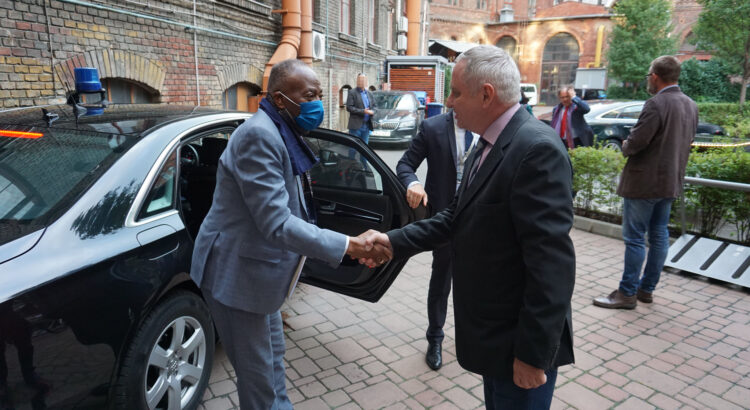
Speaker of the Namibian National Assembly visited the Africa Research Institute
Prof. Peter Hitjitevi Katjavivi, Speaker of the Namibian National Assembly and the head of the sustentative body of Namibia University of Science and Technology together with his wife Jane Katjavivi and Cornelia Tjaondjo, Special Assistant to the Speaker visited Bánki Donát Faculty on 24th of September, 2021. The president came to a governmental invitation to Hungary, and also visited our Africa Research Institute at the Doctoral School of Safety and Security Sciences.
Researchers’ Night program series was going on during the day thus the Professor attended some programs of the Bánki Donát Faculty. He inspected the pneumobiles built by our students among other things and he also tried the air driven train.
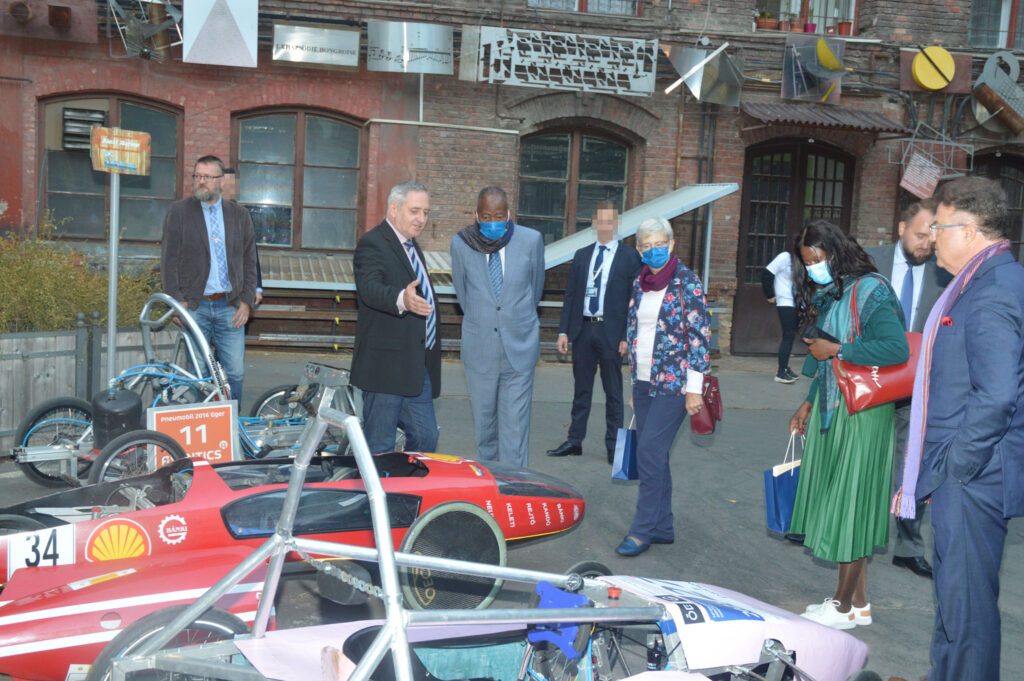
International volunteering and the development in Africa
How international volunteering can contribute to development in Africa? Can it? What are the advantages of it for either the local population or the volunteers themselves?
Zsolt Molnár presented a few considerations from his paper at our conference: 2021 International Virtual conference on “Counter-Terrorism, Technology and Development in Africa”.
Find out more from the full paper that will be published in the next edition of the Journal of Central and Eastern European African Studies (JCEEAS) coming up in November and available here: https://jceeas.bdi.uni-obuda.hu/index.php/jceeas/issue/archive
#ctd_africa21 #JCEEAS #OU_ARI #Africa #volunteering
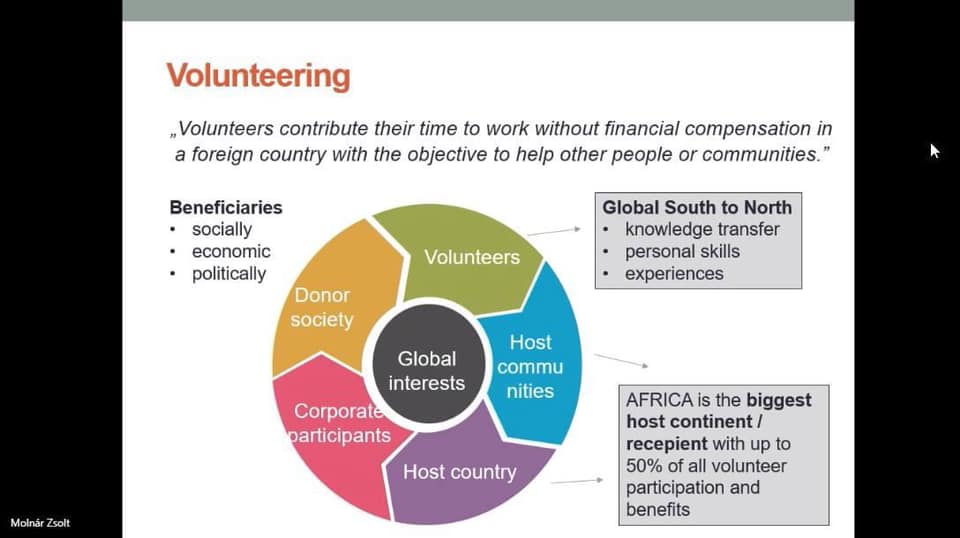
Women and terrorism
The number of female perpetrators in terrorist groups has increased recently all over the world. Women play various roles: fighters, suicide bombers, recruiters, helpers etc. Women are also used increasingly for attacks as, due to cultural reasons, they tend to be checked less by security forces.
But why do women join terrorist groups? What programs are there to deradicalize them and how successful are they?
This what Dr. Mariann Kármán has just talked about at our conference: 2021 International Virtual conference on “Counter-Terrorism, Technology and Development in Africa”.
You can read more on female violencers in the next edition of the Journal of Central and Eastern European African Studies (JCEEAS) coming up in November and available here:
https://jceeas.bdi.uni-obuda.hu/index.php/jceeas/issue/archive
#ctd_africa21 #JCEEAS #OU_ARI #femaleviolencers #Africa #terrorism
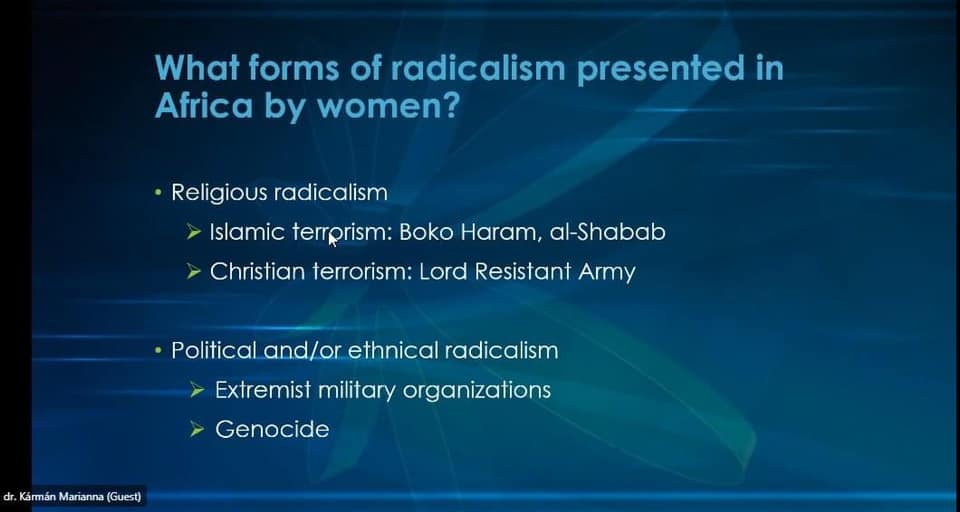
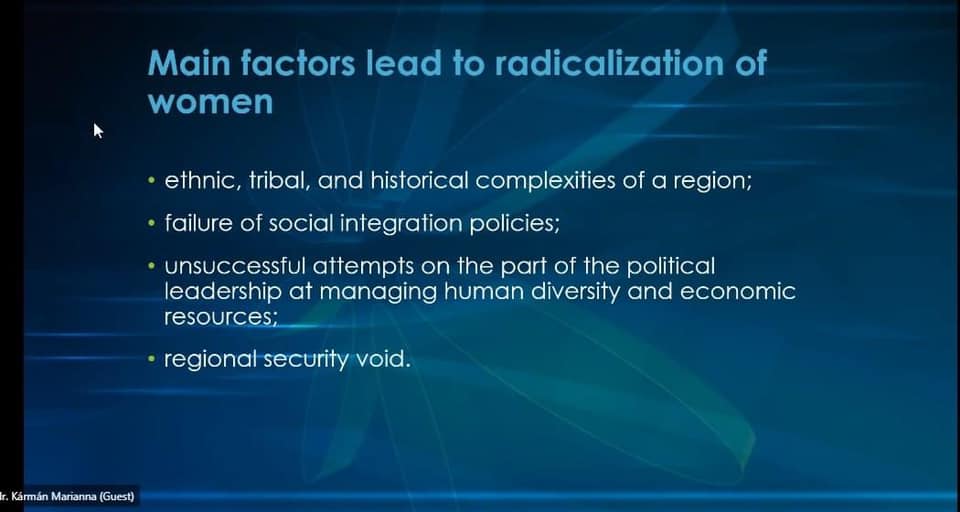
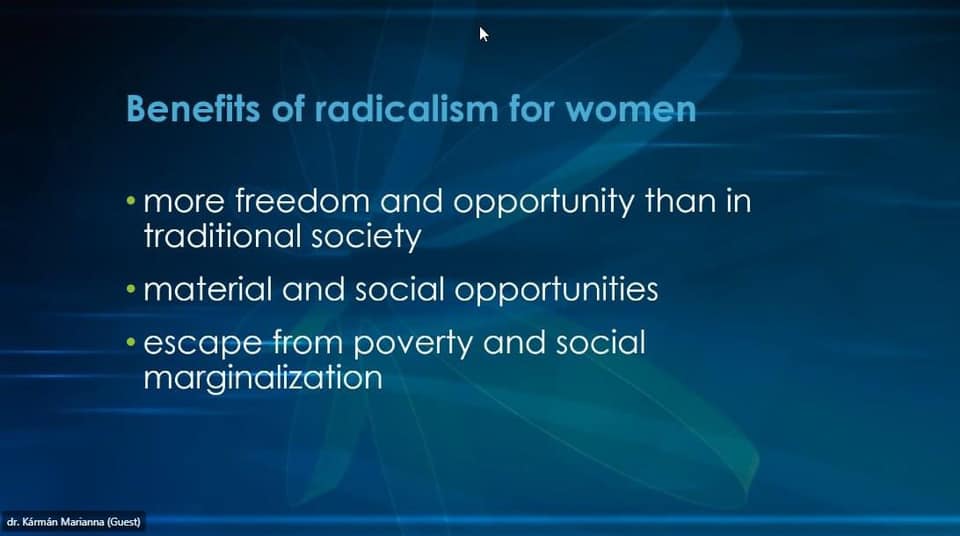
CTD 2021 Conference invitation
The Centre for Military Studies (CEMIS) from Stellenbosch University (South Africa) and the Africa Research Institute of the Óbuda University (Hungary) kindly invites you to the 2021 International Virtual conference on “Counter-Terrorism, Technology and Development in Africa” on 22 September 2021.
- Panel 1: Human security perspective
- Panel 2: Socio-Economic development
- Panel 3: Technology and cyber-security
- Panel 4: Leadership and corporate governance
For the detailed programme and the registration, please follow the website.
The first double issue of the Journal of Central and Eastern European African Studies (2021/1-2) is available!
On August 3, the first double issue of the Journal of Central and Eastern European African Studies (JCEEAS) finally arrived! The latest issue of the electronic version of the journal that is published four times a year with dozens of scientific articles and book reviews.
The 2021/1-2 issue is available here: Vol. 1 No. 1-2 (2021) | Journal of Central and Eastern European African Studies (uni-obuda.hu)
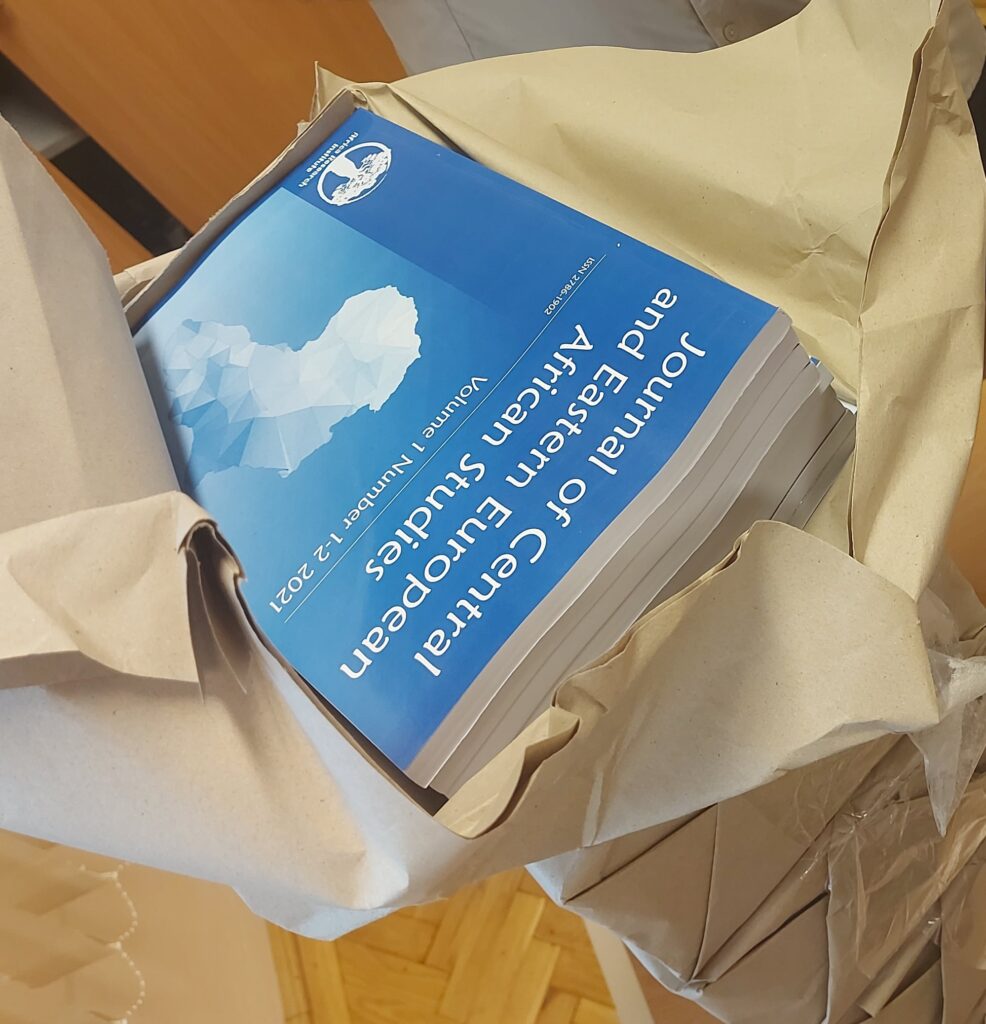

Russia: A strategic alternative? – Prof. János Besenyő at CNBC Africa
During the Cold War Russia was seeking to find a way to counter the influence of its rivals such as the US. So, it had began to develop diplomatic relations with its African counterparts. After some intermission during the 1990s, Russian-African relations have started to flourish when Putin came to power in 1999.
While the US’s ultimate aim is to tip the regional balance of power in its favour and have access to Africa’s resources, Moscow is now countering America’s influence in the continent by gaining control of natural resources and providing military support and intelligence.
For many African countries Russia can offer a strategic alternative to political and economic great powers as well as former colonial masters – said Prof. János Besenyő, Head of Africa Research Institute.
The original post is available on CNBC Africa by clicking on the link below: